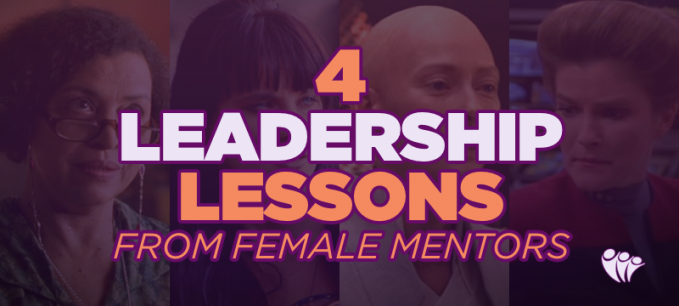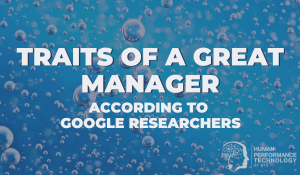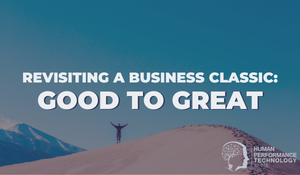4 Great Leadership Lessons - From 4 Great Female Mentors

What can we learn from the courages female characters on the silver screen? Quite a lot - especially when it comes to understanding oneself. Here is some of the best leadership advice (across film and TV), delivered by great female mentors.
Xena — Your Past Is Part of You, But It Doesn’t Define You
No two heroes shaped my early understanding of heroism more than Hercules (Kevin Sorbo) and Xena (Lucy Lawless). The dialogue was bad. The historical continuity was bad. Actually, everything was bad. Didn't matter. As a kid, it was so freakin’ good. While Hercules embodies the archetypal good guy, Xena’s character is a lot more nuanced because her story is, fundamentally, about redemption. (Xena starts out as a villain.) As you get older, you learn that human beings are a lot more like Xena than Hercules—complicated, messy, grey, with dark and light sides often at war. As George R.R. Martin (quoting William Faulkner) always says, the only thing worth writing about is the human heart in conflict with itself. Xena is a reminder that we’re all going to make mistakes, but it’s never too late to be the hero of your story.
- Xena: See how calm the surface of the water is. That was me once. And then… [Xena throws a stone in the water]… the water ripples and churns. That's what I became.
- Gabrielle: But if we sit here long enough it will go back to being still again; go back to being calm.
- Xena: But the stone is still under there. It's now part of the lake. It might look as it did before, but it's forever changed.
The Ancient One — It’s Not About You
It’s hard for employees to rally behind a company mission statement to “improve second-quarter earnings by 3%” or a CEO whose personal mission statement is “buy another yacht.” Having a purpose that’s larger than material self-interest is one of the key lessons of my favourite movie of 2016, Doctor Strange. The story centres on a self-absorbed, achievement-driven neurosurgeon—the classic “brilliant jerk” type—who, after a car crash that affects his ability to use his hands, desperately seeks out one last medical hope on a mountaintop in Tibet. There he encounters the Ancient One, played perfectly by Tilda Swinton, who becomes his teacher, opens his mind to new possibilities, and shows the “know-it-all” that he still has much to learn. Most importantly, she helps Dr. Strange understand that the highest form of leadership is servant leadership.
- Ancient One: Arrogance and fear still keep you from learning the simplest and most significant lesson of all.
- Dr. Strange: Which is?
- Ancient One: It's not about you.
The Oracle — Know Thyself
One of, if not the most, prominent theme explored in my favourite film of all time, The Matrix (1999), is the nature of identity. A few years ago, this became the topic of widespread discussion when the film’s co-creators, the Wachowski brothers (Larry and Andy), came out as transgender (Lana and Lilly). Think about it: the black leather. The androgynous look of Neo and Trinity. The very first image in the film is "Call trans opt: received." Fighting a system based on binaries that won’t accept change. The exchange in the underground BDSM nightclub where Neo always assumed the infamous hacker “Trinity” was a guy and she replies, “Most guys do.” The fact that Lana very nearly committed suicide in a subway station. The agent who keeps repeating the name “Mr. Anderson” rather than “Neo”—his new identity. (And many more examples.) Deeper than discovering your strengths and weaknesses, biases and blindspots, is knowing your true self, who you really are—and not what a brainwashed society tells you to be. Self-awareness is more than a necessary condition of great leadership: it's at the very heart of the human journey.
- Oracle: You know what that means?
- [Neo looks at the banner with the writing “Temet Nosce”]
- Oracle: It's Latin. Means "know thyself." I'm going to let you in on a little secret. Being The One is just like being in love. No one can tell you you're in love, you just know it. Through and through. Balls to bones.
Captain Janeway — Create a Circle of Safety
Simon Sinek describes the task of leadership as creating a “circle of safety” (where people feel safe at work). A simple idea. Difficult to execute. Which brings me to one of the best examples of leadership in all fiction: Captain Kathryn Janeway from Star Trek: Voyager. Janeway is well balanced: smart but not arrogant, strong but not brutal, sceptical yet open minded, principled without being rigid. Others respect the captain beyond rank; her power is character-based, not position-based. Crucially, Janeway would take a bullet (or phaser beam) for any of her crew. Now, okay, it’s not realistic to expect execs at work to put their lives on the line in the same way. It’s more the general style of Janeway’s command, coupled with her profound sense of concern—the feeling that, if you worked for her, she would really care about you as an individual (and not just a cog or "asset" in a giant productivity engine)—that I find awfully inspiring.
- Janeway: There are three things to remember about being a starship captain: keep your shirt tucked in, go down with the ship, and never abandon a member of your crew.
Topics:
Leadership
Theo Winter
Client Services Manager, Writer & Researcher. Theo is one of the youngest professionals in the world to earn an accreditation in TTI Success Insight's suite of psychometric assessments. For more than a decade, he worked with hundreds of HR, L&D and OD professionals and consultants to improve engagement, performance and emotional intelligence of leaders and their teams. He authored the book "40 Must-Know Business Models for People Leaders."



We Would Like to Hear From You (0 Comments)